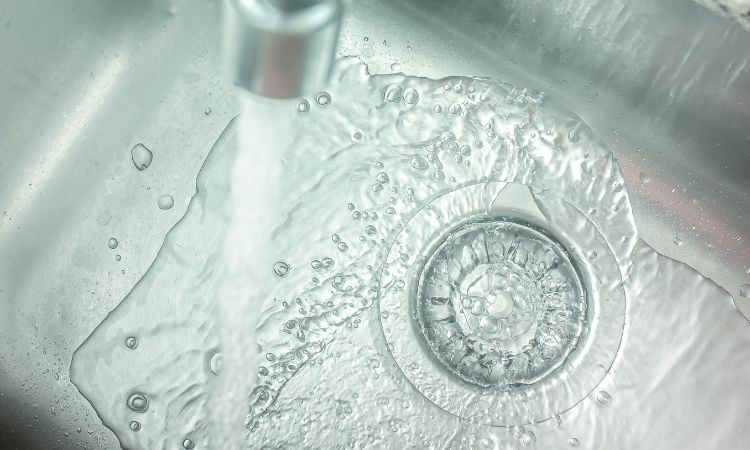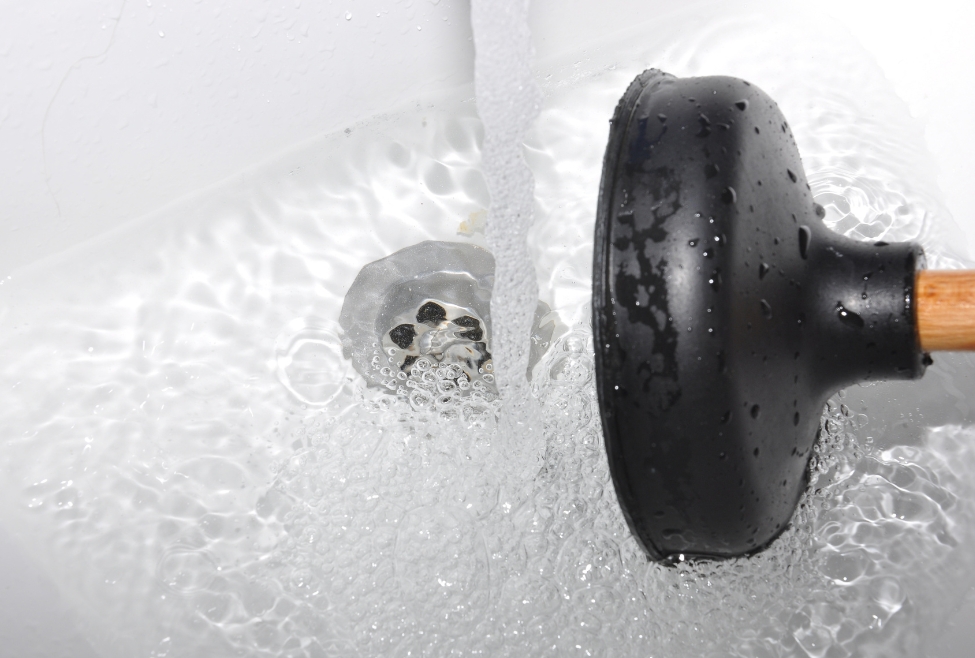Crucial Steps To Correct A Slow-Draining Sink
Crucial Steps To Correct A Slow-Draining Sink
Blog Article
Here in the next paragraphs you might get a lot of dependable advice regarding Solved! How to Fix a Slow Sink Drain.

Intro
We've all existed: You're brushing your teeth or cleaning your hands, and you observe the water pooling in the sink. Rather than swiftly swirling down the drain, it lingers, turning your once-refreshing early morning routine into a miniature swamp scene. A slow-draining sink isn't simply annoying; it's usually an indicator of bigger pipes concerns hiding below the surface. The good news is that many slow-draining sinks can be taken care of with a little knowledge, a couple of basic devices, and some perseverance. Ready to tackle this task head-on? Let's roll up our sleeves and dive right in.
Recognizing the Root Causes Of a Slow-Draining Sink
Before you begin poking around in your pipelines, it aids to recognize what could be causing the slowdown. Understanding the origin makes it less complicated to pick the appropriate repair.
Devices and Products You'll Require
The right devices make all the difference. The good news is, you won't require a completely stocked plumbing's van to do the job.
Step-by-Step Guide to Fixing a Slow-Draining Sink
Now, allow's enter into the nitty-gritty. This detailed process will guide you via straightforward techniques to recover your sink's drain.
Step 1: Get Rid Of and Clean the Stopper
Often, the stopper (that small plug you lower to block water) is the first perpetrator. Remove it carefully and clean off any kind of hair or crud caught around its base. Wash it thoroughly before putting it back in place.
Step 2: Utilize a Plunger to Remove Debris
Got that plunger prepared? Placement it over the drainpipe and provide it a few firm pumps. The idea is to develop suction that can loosen up any kind of clog. If you see littles particles drifting up, you get on the appropriate track.
Action 3: Try a Drain Serpent or Cord Hanger
If the plunger doesn't work, it's time to highlight the drainpipe snake. Gently feed it into the drainpipe and spin as you go. You could feel some resistance-- that's likely the blockage. Maintain twisting and drawing up until you remove the blockage. If you do not have a drain serpent, an aligned cord hanger can operate in a pinch.
Tip 4: Apply a DIY Drain Cleanser
An all-natural cleaner made from baking soft drink and vinegar can break down residual grime. Put half a cup of cooking soft drink right into the drain, followed by half a cup of vinegar. Allow it fizz for around 15 mins, then flush with hot water. This chemical reaction frequently does wonders for minor blockages.
Tip 5: Rebuild and Examine the Sink
Placed everything back together and run the faucet. Does the water now swirl down the drain at a reputable speed? If yes, give yourself a pat on the back. Otherwise, do not anguish-- there are still a few more dress up your sleeve.
Crucial Devices for DIY Repair Works
A bettor is your best starting factor. A little, sink-sized bettor develops suction that can displace minor obstructions. For more relentless clogs, a drain snake (in some cases called a plumber's auger) functions wonders. A set of gloves, a flashlight, and possibly a pair of safety safety glasses are also useful.
Advised Cleansing Solutions
Moderate recipe soap and warm water can help break down oily build-up. A mixture of baking soda and vinegar is a tried and true home remedy, and chemical cleansers offer an even more eco-friendly method. Maintain chemical drainpipe cleansers as a last resort, as they can be severe on your pipes.
Typical Perpetrators Behind Slow Drain
So, what's blocking points up? Commonly, it's a mixture of day-to-day particles-- believe hair, soap scum, tooth paste residue, and leftover food fragments. In time, these tiny bits gather and cling to the pipe wall surfaces, slowly tightening the passage and making it harder for water to go through. In some cases, natural resource from hard water can additionally contribute to the crud, developing the excellent tornado for persistent clogs.
When is it Time to Take Action?
If you notice the water draining pipes slower than normal, it's a great idea to interfere earlier instead of later on. Waiting too long could cause finish obstructions, unpleasant smells, or even pipeline damage. If the water takes more than a few seconds to remove after turning off the faucet, consider it a red flag and prepare to place on your do it yourself hat.
Safety And Security First: Preventative Measures and Prep work
Before you launch into unclogging mode, think about safety. You're taking care of possibly filthy water and debris, so slip on a pair of handwear covers. If you're using chemical cleansers, guarantee the room is well-ventilated and adhere to the guidelines on the tag.
Protective Gear and Work Space Arrangement
Put down some old towels or dustcloths around the sink location to catch dashes. Remove any things that might enter your way, like soap dispensers or tooth brush holders. See to it you have good lights-- get hold of a flashlight if needed.
Alternate Approaches for Stubborn Clogs
Not all blockages are developed equal. If your sink still rejects to work together, take into consideration these alternative options.
Sodium Bicarbonate and Vinegar Method
We currently discussed this, but it's worth noting once again. This gentle, environment-friendly approach is much safer than chemical cleansers and often fairly reliable.
Chemical Drain Cleansers
Enzyme-based cleaners use all-natural germs to absorb organic matter. They're a superb choice if you're aiming to stay clear of severe chemicals. Simply bear in mind, they might take a bit longer to function their magic.
Chemical Drainpipe Cleaning Company: Advantages And Disadvantages
Chemical cleaners can blow up via hard obstructions fast, but they're not without downsides. They can generate warmth and fumes, damage pipelines if used exceedingly, and position ecological risks. Utilize them sparingly, and constantly comply with the directions meticulously.
Preventive Measures to Maintain Your Sink Flowing
Avoidance is the very best treatment. By taking on a few straightforward habits, you can keep your sink from reducing to begin with.
Normal Cleansing Habits
Wipe down the sink basin and fixture area regularly. Remove hair or food particles before they have a chance to wash down the drain.
Avoiding Damaging Compounds Down the Drain
Hesitate prior to dumping coffee grounds, oil, or coarse veggie scraps down the sink. These culprits hold on to pipeline wall surfaces, creating clogs gradually.
Regular Upkeep Checks
Set up a quick regular monthly evaluation. Run warm water through the sink for a few minutes, paying attention to the flow. If it appears slow-moving, act fast before it ends up being a full-blown obstruction.
When to Call an Expert Plumbing Technician
Often, no matter exactly how tough you try, that obstruct simply will not budge. That's when it's time to bring in the pros.
Indicators That Indicate an Extra Major Concern
If your sink drains pipes slowly despite several efforts, or if you notice water supporting in various other fixtures (like your shower or commode), you may have a much more severe pipes concern prowling much deeper in the system.
Stabilizing Do It Yourself Initiatives with Professional Assistance
While do it yourself can conserve you cash and provide a sense of accomplishment, there's no shame in calling an expert. A professional plumbing technician can analyze your whole pipes setup, ensuring there's no underlying damages or long-term trouble that might cost you more later on.
Contrasting Expenses and Long-Term Solutions
Prior to choosing, take into consideration the big picture. An economical, quick fix might fix the trouble briefly, but investing in a more long-term solution could conserve you cash and stress in the future.
Considering the Costs of Do It Yourself vs. Specialist Fixes
Do it yourself solutions typically set you back little bit greater than the price of a plunger or a bottle of baking soda. Specialist solutions, on the other hand, featured a price tag but may prevent repeated issues and expensive repairs later.
Purchasing High Quality Fixtures and Upgrades
If your sink's style contributes to frequent clogs, it may be worth upgrading to higher-quality fixtures or modifying the pipes design. Consider this an investment in your house's capability and convenience.
Conclusion
A slow-draining sink can seem like a minor irritation, yet it's typically a sign that your plumbing requires a little TLC. By understanding the origin, employing the right devices and techniques, and devoting to easy safety nets, you can keep your sink streaming openly. And when all else fails, never ever wait to contact a specialist-- your home's plumbing is worth the financial investment in care and maintenance.
Three Common Ways to Fix a Slow Drain
Baking Soda Method
Boil a full pot of water. Measure out cup of baking soda and pour it down the drain. Then take cup of the magical cleansing substance known as white vinegar and drop that down there too. Allow the mixture to fizz in the drain for five minutes as the vinegar and baking soda combine. Now dump in that whole pot of boiling water. This combination of cleaning substances should clear out anything that is causing your sink to drain slowly. If it doesn t...
Zip-It
If the baking soda method doesn t clear out your drain, it may be because a significant amount of hair and/or other debris has collected there and you need to remove it. Purchase a Zip-It tool at any home improvement or hardware store and insert it into your drain. It will catch any collected hair or debris that s blocking the flow of water. Pull it out. If it s got a big clump of hair, etc. on the end, you ve probably got your culprit.
Drain Cleaner
If these methods don t work, there is the standard drain cleaner that you can also buy in a hardware store or even your local grocery store. It s better if you can use a household solution, but these drain cleaners often work in a pinch. They re very simple to use. You generally just dump them in your drain and wait. If even this method is not effective, it may be time to call the plumber.
https://www.mrrooter.com/oneida/about-us/blog/2017/july/three-common-ways-to-fix-a-slow-drain/

I'm just very enthusiastic about and I really hope you enjoyed reading the entire article. So long as you liked our blog posting plz don't forget to share it. Thanks a lot for your time spent reading it.
Try Here Report this page